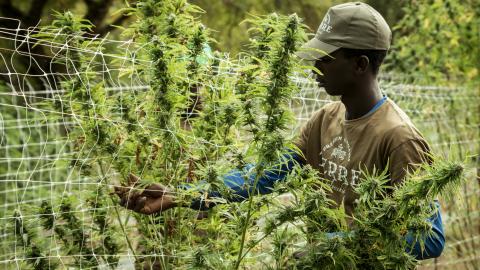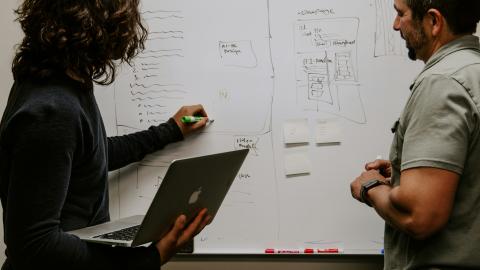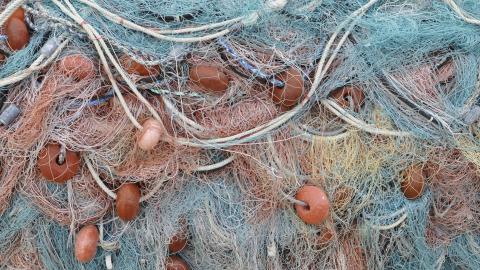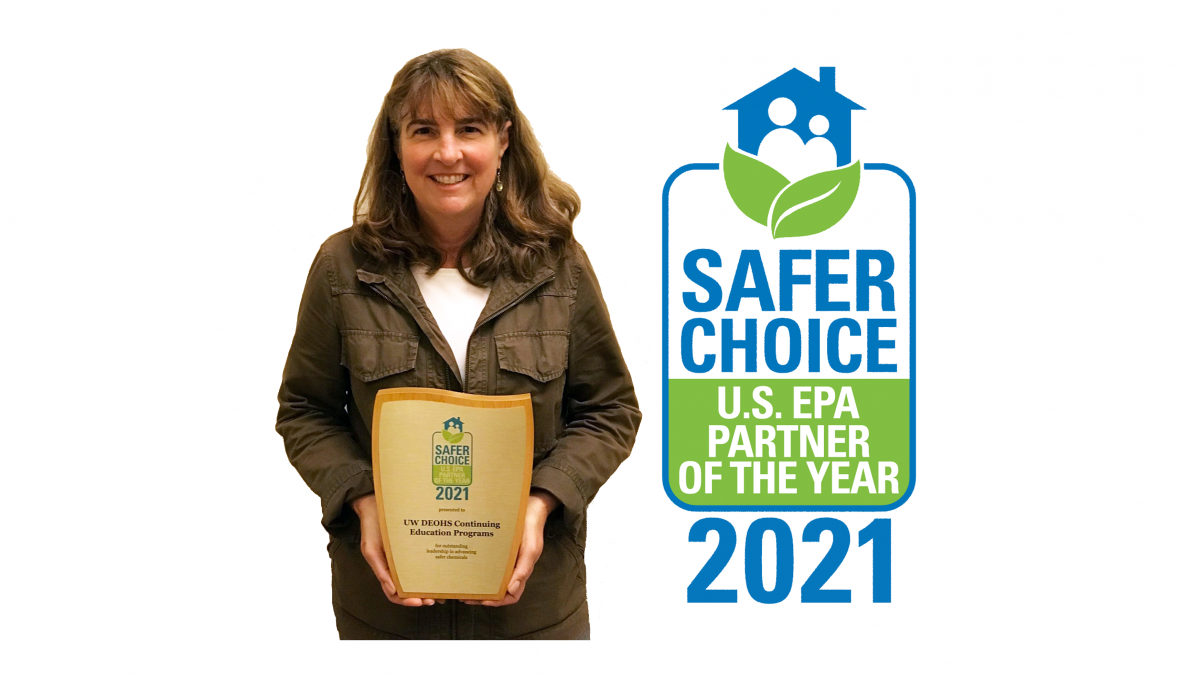
October 22, 2021
The UW DEOHS CE Program is one of 33 Safer Choice Partner of the Year Award winners for achievement in the design, manufacturing, selection, and use of products with safer chemicals.
In response to a surge in calls to the Poison Control Center because of increased misuse of cleaning and disinfecting products in 2020, the UW DEOHS CE Program collaborated with several organizations including the WA Department of Health, WA Department of Ecology, and the Occupational Health and Safety Section of the American Public Health Association to publish a factsheet on best practices for safer cleaning and disinfecting to prevent the spread of COVID-19. This fact sheet was disseminated widely for use in homes and businesses. Hazardous chemicals are very common in cleaning, sanitizing, and disinfecting processes.
 The UW DEOHS CE Program is committed to raising awareness about the hazards of common products and practices and educating workers and employers about safer alternatives. People using these products, and people in the spaces where they are used, can get sick or develop illnesses if too much exposure occurs, including asthma. Some common products harm reproductive health or may cause cancer if too much exposure occurs, while others damage skin or other body systems. For example, custodians using cleaning products and disinfectants may suffer from work-related asthma due to exposure on the job.
The UW DEOHS CE Program is committed to raising awareness about the hazards of common products and practices and educating workers and employers about safer alternatives. People using these products, and people in the spaces where they are used, can get sick or develop illnesses if too much exposure occurs, including asthma. Some common products harm reproductive health or may cause cancer if too much exposure occurs, while others damage skin or other body systems. For example, custodians using cleaning products and disinfectants may suffer from work-related asthma due to exposure on the job.
The COVID-19 cleaning fact sheet produced by the UW DEOHS CE Program introduces users to third party labels such as Safer Choice, the hazards associated with the common products they may be using, and outlines simple steps for safer and effective cleaning, disinfecting, and sanitizing. The UW DEOHS CE Program has made safer cleaning education a cornerstone of its mission.
"Our team is honored to receive the Safer Choice Partner of the Year Award" says Nancy Simcox, Director of the UW DEOHS CE Program, "it is so important to advance the principles of safer chemistry to employers and employees."
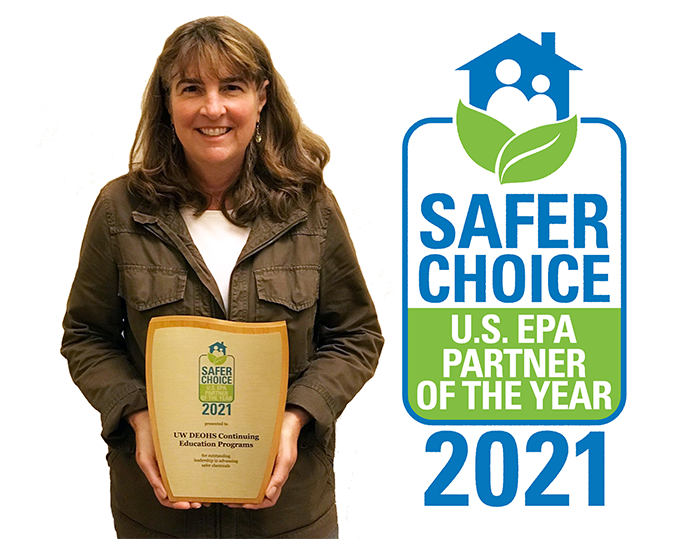 In addition to this award-winning fact sheet, the UW DEOHS CE team recently partnered with PopUp! Justice, the Washington State Department of Ecology, UW Bothell, Heritage University, and the Washington State Food Truck Association for a UW EarthLab funded project for safer cleaning in the booming food truck industry. The Clean SHiFT project developed a website in English and Spanish, as well as a wealth of free resources, encouraging workers and employers to learn about the six steps for safer cleaning in food trucks.
In addition to this award-winning fact sheet, the UW DEOHS CE team recently partnered with PopUp! Justice, the Washington State Department of Ecology, UW Bothell, Heritage University, and the Washington State Food Truck Association for a UW EarthLab funded project for safer cleaning in the booming food truck industry. The Clean SHiFT project developed a website in English and Spanish, as well as a wealth of free resources, encouraging workers and employers to learn about the six steps for safer cleaning in food trucks.
Over the years, the UW DEOHS CE Program has partnered with local schools to provide safer chemical curriculum and activities, conducted outreach in rural Alaska about safer cleaning, developed online training with PennState Extension for safe cleaning in early childhood classrooms, and worked with UW Sustainability to “greenify” labs within the Department of Environmental and Occupational Health Sciences through complimentary lectures and resources.
"We appreciate the collaboration with the UW DEOHS CE Program because the team is so creative, fun to work with, and willing to listen to the perspectives of many partners to deliver their educational programs" says Saskia Van Bergen of the WA Department of Ecology.
Moving forward the UW DEOHS CE Program plans to continue partnering with the WA Department of Ecology, and other regional partners, to continue moving safer chemical research and practices forward to protect human health and the environment.
The UW DEOHS CE Program currently offers the following training opportunities and resources related to safer chemicals and cleaning:
- Download the Safer COVID Cleaning Fact Sheet
- The Green Chemistry and Chemical Stewardship Online Certificate Program
- Clean SHiFT
- OSHA #7225 Transitioning to Safer Chemicals
- Green Cleaning, Sanitizing, and Disinfecting: A Curriculum for Early Care & Education
- MoDRN: Molecular Design Research Network - a collaborative effort with Yale, Baylor University, and The George Washington University offering free curriculum for High School and Undergraduate classrooms


